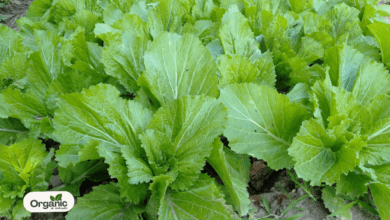Health Benefits of Organic Meat – Why Choosing Organic Meat Matters for Your Health and the Planet

In recent years, the demand for organic food, particularly organic meat, has surged worldwide. With increasing awareness about food safety, animal welfare, and environmental sustainability, many consumers are rethinking their dietary choices. The question arises: What are the health benefits of organic meat, and why should it matter to you?
This article, crafted by the allwellhealthorganic team, explores the multifaceted advantages of organic meat, backed by scientific evidence and ethical farming principles. From superior nutrition to lower chemical exposure and environmental benefits, organic meat offers a comprehensive pathway to healthier living and responsible consumption.
Understanding Organic Meat: What Sets It Apart?
Defining Organic Meat
Organic meat comes from animals raised following strict guidelines that prohibit the use of synthetic pesticides, genetically modified organisms (GMOs), antibiotics, and growth hormones. Certified organic animals are fed organic feed, live in humane conditions, and have access to the outdoors, which collectively ensures higher welfare standards.
In contrast, conventional meat production often involves confined feeding operations, routine use of antibiotics, synthetic hormone administration, and feed grown with chemical inputs.
Certification Standards for Organic Meat
For meat to be labeled “organic,” farms must comply with regulations established by certifying bodies such as the USDA in the United States, or similar authorities globally. These standards include:
- Animals must be raised on 100% organic feed.
- No use of synthetic hormones or antibiotics except in emergency cases.
- Access to pasture and outdoor environments.
- Prohibition of GMOs in animal feed.
- Maintenance of animal welfare and natural behaviors.
Such certifications offer consumers transparency and assurance regarding how the meat was produced.
The Nutritional Superiority of Organic Meat
Higher Levels of Beneficial Fatty Acids
One of the most significant health benefits of organic meat is its improved fatty acid composition. Organic meat, especially from grass-fed animals, contains higher concentrations of omega-3 fatty acids compared to conventionally raised meat.
Omega-3 fatty acids are essential for human health. They contribute to cardiovascular health by reducing triglycerides, lowering blood pressure, and decreasing the risk of heart disease. Omega-3s also support brain function, reduce inflammation, and improve mental health outcomes such as depression and anxiety.
Research shows that organic meat can contain up to 50% more omega-3 fatty acids, attributed to animals grazing on nutrient-rich pastures instead of being fed grain-based diets common in conventional farming.
Enhanced Conjugated Linoleic Acid (CLA) Content
Conjugated Linoleic Acid (CLA) is another fatty acid present in higher amounts in organic meat. CLA has been studied for its potential anti-cancer properties, immune-boosting effects, and role in reducing body fat.
Animals raised on pasture and organic farms tend to have increased CLA levels due to their natural diets. Regular consumption of organic meat can thus support immune function and metabolic health.
Greater Antioxidant Levels
Organic meat often contains higher levels of antioxidants like vitamin E and other beneficial phytochemicals derived from the animal’s forage. Antioxidants protect the body’s cells from oxidative stress, which is linked to aging, chronic diseases, and cancer.
These antioxidants also contribute to the meat’s shelf life and flavor stability, making organic meat not only healthier but often fresher tasting.
Richer in Essential Micronutrients
Studies indicate that organic meat has higher levels of vital micronutrients such as zinc, iron, and vitamin B12. These nutrients are crucial for red blood cell production, immune health, cognitive function, and energy metabolism.
Due to the natural diets and better health of organically raised animals, their meat provides a denser source of these nutrients compared to conventional meat.
Avoiding Harmful Chemicals: Safety Benefits of Organic Meat
Free from Routine Antibiotics
Antibiotic resistance is a major public health threat worldwide. Conventional livestock farming often uses antibiotics routinely to prevent disease and promote growth, leading to antibiotic-resistant bacteria that can transfer to humans.
Organic meat production strictly prohibits routine antibiotic use. Animals can only be treated in emergencies, and those treated must be removed from the organic supply chain. This approach helps reduce the spread of antibiotic resistance and ensures cleaner, safer meat.
No Synthetic Growth Hormones
Synthetic hormones like rBST (recombinant bovine somatotropin) are used in conventional dairy and meat farming to increase production. These hormones can leave residues in meat products, and while regulatory agencies consider them safe at prescribed levels, many consumers prefer to avoid them due to potential health concerns.
Organic certification forbids the use of synthetic hormones, offering meat free from hormone residues, which some studies suggest may impact human hormone balance and increase cancer risk.
Reduced Exposure to Pesticides and GMOs
The organic feed given to livestock is grown without synthetic pesticides, herbicides, and genetically modified organisms. Consequently, organic meat contains significantly fewer pesticide residues than conventional meat.
Lower pesticide exposure can reduce risks linked to endocrine disruption, neurotoxicity, and certain cancers. Choosing Benefits of Organic Meat thus minimizes chemical intake from multiple sources.
Environmental Benefits of Organic Meat Production
Promoting Sustainable Farming Practices
Organic farming emphasizes soil health, crop diversity, and ecological balance. By avoiding synthetic fertilizers and pesticides, organic farms foster healthy soil microbiomes, improving fertility and carbon sequestration.
Healthy soils retain more water and resist erosion, making organic farming more resilient to climate variability. This sustainable approach benefits the environment and ensures long-term food security.
Reducing Water Pollution
Conventional farming’s heavy use of chemicals contributes to water pollution through runoff, contaminating streams, rivers, and groundwater. Organic farming drastically reduces chemical inputs, helping protect aquatic ecosystems and community water supplies.
Supporting Biodiversity and Animal Welfare
Organic farms promote biodiversity by maintaining varied landscapes and reducing toxic chemical use. This supports beneficial insects, birds, and soil organisms.
Animal welfare is integral to organic standards, ensuring animals live in more natural conditions with room to roam and express natural behaviors, which improves ecosystem health and resilience.
Climate Change Mitigation
Organic pastures can act as carbon sinks, absorbing CO2 from the atmosphere and storing it in the soil. This carbon sequestration can offset greenhouse gas emissions from livestock farming, making organic meat a more climate-friendly choice.
The Ethical Dimension: Animal Welfare in Organic Meat Production
Humane Living Conditions
Animals on organic farms have access to outdoor pasture, fresh air, sunlight, and space to move freely. These conditions reduce stress and disease susceptibility.
Natural Diets and Behavior
Allowing animals to graze on natural pastures supports their physical and psychological health. It reduces the need for medical interventions and produces meat of higher quality.
Supporting Responsible Farming
By choosing organic meat, consumers support farmers who prioritize animal welfare and sustainability. This ethical stance aligns with a growing movement toward compassionate food systems.
The Taste Factor: Does Organic Meat Taste Better?
Influence of Diet on Flavor
The diverse natural diet of organic animals often leads to richer, more complex flavors in the meat. Grass-fed and pasture-raised animals tend to have a distinctive, robust taste compared to grain-fed conventional meat.
Quality and Freshness
Animals raised organically tend to be healthier and less stressed, which improves meat tenderness and texture. Many chefs and consumers report that organic meat has a superior taste and mouthfeel.
Personal Preferences
While taste can be subjective, trying organic meat is often recommended to appreciate the flavor differences. Cooking methods and freshness also influence the overall eating experience.
Addressing Common Concerns: Is Organic Meat Worth the Cost?
Why Is Organic Meat More Expensive?
Organic meat production involves higher costs due to:
- More land and space per animal.
- Higher prices for organic feed.
- More labor-intensive farming practices.
- Certification and regulatory compliance.
- Slower growth rates of animals.
These factors contribute to higher retail prices for organic meat.
Making Organic Meat Affordable
You can enjoy the benefits of organic meat while managing costs by:
- Buying in bulk or larger cuts.
- Purchasing from local farmers or CSA programs.
- Choosing less expensive cuts and cooking creatively.
- Reducing overall meat consumption and focusing on quality over quantity.
Health and Environmental Investment
Though pricier, organic meat represents an investment in long-term health, ethical farming, and environmental stewardship. These benefits often outweigh short-term cost savings of conventional meat.
Organic Meat and Public Health: Broader Implications
Reducing Antibiotic Resistance Risk
The reduced use of antibiotics in organic livestock lessens the emergence of antibiotic-resistant bacteria, a critical issue in global health.
Lower Chronic Disease Risks
The superior nutrient profile and reduced chemical exposure in organic meat may contribute to lowering risks of chronic diseases like heart disease, cancer, and metabolic disorders.
Supporting Food System Resilience
Organic farming’s focus on sustainability and biodiversity helps build resilient food systems that can better withstand climate change and resource challenges.
How to Identify and Choose Organic Meat
Look for Certified Organic Labels
Ensure meat products bear certification logos from reputable agencies like USDA Organic or equivalent local certifiers.
Know Your Sources
Buy from trusted suppliers, farmers’ markets, or direct farm-to-consumer programs.
Understand Labels
Be wary of terms like “natural” or “free-range” that may not guarantee organic standards.
Incorporating Organic Meat into a Balanced Diet
Portion Control and Variety
Organic meat should be part of a balanced diet rich in vegetables, fruits, whole grains, and legumes.
Cooking Tips for Organic Meat
To preserve nutrients and flavor, cook organic meat using gentle methods like grilling, roasting, or slow cooking.
Final Thoughts – Why the Health Benefits of Organic Meat Matter
Choosing organic meat is more than a dietary preference—it’s a lifestyle choice that promotes health, animal welfare, and environmental sustainability. The allwellhealthorganic team encourages everyone to consider these factors when selecting meat products.
By opting for organic meat, you embrace a food system that respects the planet and your body, ensuring a healthier future for all.



